When Sony released the original Walkman portable cassette player
(the TPS-L2) in the UK, they named it the “Stowaway”. Although the name didn’t
last it does serve as a nice introduction to talk about Music For Stowaways,
the first (were there others?) album designed to be listened to on the device.
In 1980, after being dismissed from the Human League, Martyn Ware and Ian Craig Marsh formed British Electric Foundation – not a band as such, but a “production company” that planned to oversee a variety of releases they were involved in.
The first products from B.E.F. came out within a few weeks of one another - one being Heaven 17’s debut single, (We Don’t Need This) Fascist Groove Thang on 6 March 1981, with the second being its companion piece, an album by B.E.F. called Music For Stowaways (which included an instrumental version of Fascist Groove Thang) on 31 March.You get the impression from the early Heaven 17 releases that they
were never intended to be a long term prospect, just one in a number of projects
by B.E.F. with no long term plans. The songwriting credits on their early release were even credited
to “BEF/Gregory”, making it clear that these were very much a B.E.F. thang, with Glenn Gregory (H17 singer) collaborating on this project. The
Fascist Groove Thang and Height of the Fighting singles even had b-sides that
were solely by B.E.F. and the inner sleeve of the first two Heaven 17 albums
were used to advertise past, present and proposed B.E.F. releases (as well as a
handful of the Human League MK1 releases).
Fast forward to 2023, exactly 42 years from it's oroginal release, this new vinyl issue brings together the original album tracks and the accompanying pieces released in different places around the same time – A Baby Called Billy from Music For Listening To along with Honeymoon in New York from Heaven 17’s Height of the Fighting single. The album, no longer defined by Uptown and Downtown sides, is now bookended by identical version of the B.E.F. Ident – great as they are, this baffles me. There is an uncredited alternative version of this track featured on both the Fascist Groove Thang and I'm Your Money 12" singles that would have made a much better case for being included at the end of the album.
Gripe aside, the album is still an essential listen for anyone who has an
interest in the history of electronic music. It was the first solely instrumental
album I ever bought, thanks to those adverts on the inner sleeves of Penthouse and Pavement and The Luxury Gap. As an impressionable 12 year old pop fan anything by my favourite pop bands was, to my ears, still pop music, no matter how out-there it might have been. As an owner of a vast amount of instrumental and electronic music I often wonder where those seeds might have been planted and this is certainly one of them. Bands should never underestimate the power they have to change someone's life.


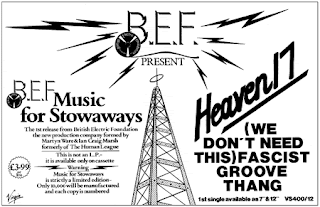
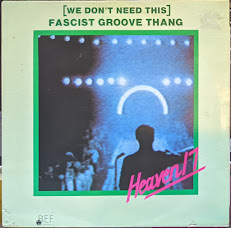

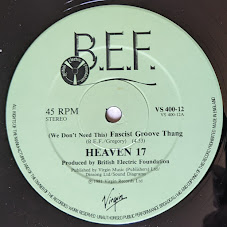
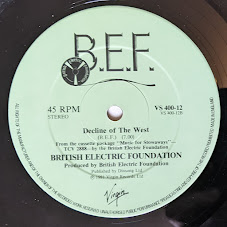



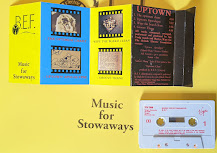



No comments:
Post a Comment